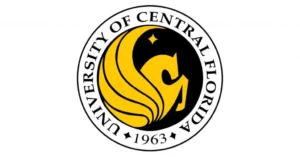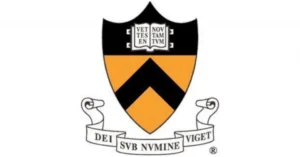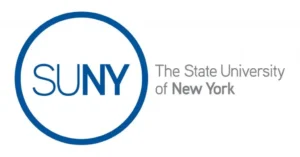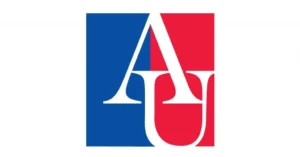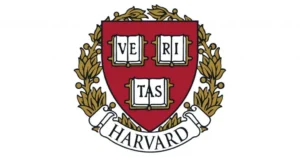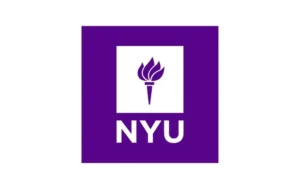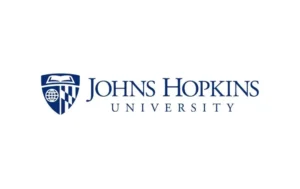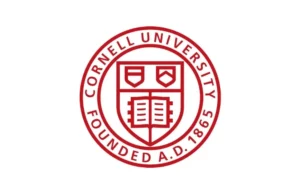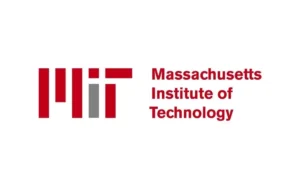- Home to 4 of the top 10 universities globally(QS Rankings)
- Shorter durationprograms (UG: 3 years, PG: 1 year)
- Globally recognized degrees and qualifications
- Post-study work visa(Graduate Route – 2 years for UG/PG, 3 years for PhD)
- Strong industry links and research-focused institutions
- Multicultural student community with global exposure
- Access to NHS healthcarefor students on Tier 4 visas
United Kingdoms
The United Kingdom (UK) is one of the most popular destinations for international education, known for its prestigious universities, academic excellence, and multicultural environment. The UK includes England, Scotland, Wales, and Northern Ireland, offering diverse cultures, rich history, and global career opportunities.
The UK is one of the top global destinations for higher education, known for its prestigious universities, research excellence, and multicultural society. It consists of four countries: England, Scotland, Wales, and Northern Ireland.
The UK is famous for academic innovation, world-class faculty, and historic institutions like Oxford and Cambridge. Each year, it welcomes over 680,000+ international students who pursue degrees across diverse fields.
Quick Facts about the UK
| Category | Details |
| Full Name | United Kingdom of Great Britain and Northern Ireland |
| Capital | London |
| Major Cities | Manchester, Birmingham, Edinburgh, Glasgow, Liverpool, Leeds |
| Official Language | English |
| Currency | British Pound Sterling (£ GBP) |
| Population | Approx. 68 million |
| Time Zone | GMT (Greenwich Mean Time) / BST (British Summer Time) |
| International Student Population | 680,000+ (as of 2024) |
| Intakes | September (main), January, and May |
| Climate | Mild, with cool winters and warm summers |
| Popular Fields of Study | Business, Engineering, Computer Science, Law, Health Sciences, Arts, Social Sciences |
Contact Us
Get in touch with Dream International and start your study abroad journey today!
Why Study in the UK?
Benefits
- Academic Excellence:UK universities rank consistently amog the world’s best
- One-Year Master’s Degrees:Save time and cost compared to other countries
- Work While Studying:20 hours/week during term, full-time during holidays
- Post-Study Work Opportunities:Graduate Route visa (2–3 years)
- Scholarship Opportunities:Government and university-specific options
- Cultural Diversity:Over 200 nationalities represented
- Gateway to Europe:Easy access to travel across Europe
- Permanent Residency (Indefinite Leave to Remain – ILR):Available after 5 years of work/stay
UK Education System for International Students
The UK education system is globally recognized for its academic rigor, research excellence, and flexibility. It allows students to specialize early and graduate with a focused degree.
Levels of Education
1. Foundation / Pathway Programs
- Duration: 6 months – 1 year
- Designed for students who don’t meet direct university entry requirements
- Prepares for undergraduate degrees
2. Undergraduate (Bachelor’s Degrees)
- Duration: 3 years (England, Wales, NI) or 4 years (Scotland)
- Types:
- BA(Bachelor of Arts)
- BSc(Bachelor of Science)
- BEng(Bachelor of Engineering)
- LLB(Bachelor of Law)
- Sandwich programs (with work placements) may take 4 years
3. Postgraduate Taught Degrees (Master’s)
- Duration: 1 year (full-time)
- Types:
- MA / MSc / MEng / LLM / MBA
- Emphasizes coursework, dissertation, and practical application
4. Postgraduate Research Degrees (PhD / Doctorate)
- Duration: 3–4 years
- Focus on original research and thesis writing
- Requires a research proposal and supervisor approval
Grading System
Grade | Classification | Equivalent |
70%+ | First Class (1st) | Excellent |
60–69% | Upper Second (2:1) | Very Good |
50–59% | Lower Second (2:2) | Good |
40–49% | Third Class | Pass |
< 40% | Fail | – |
Book Your Free Consultation Today!
Essential Guide: Why Study in the UK with Dream International
| Key Aspect | Details |
|---|---|
| Number of Universities | 160+ world-class institutions across England, Scotland, Wales, and Northern Ireland. Includes globally renowned universities such as Oxford and Cambridge, and modern, research-intensive universities offering diverse courses. |
| Annual Tuition Fees | – Undergraduate: £10,000–£25,000 – Postgraduate: £12,000–£30,000 – Specialist (MBA, Medicine): £30,000–£50,000+ – Scholarships available to help reduce costs. |
| Monthly Living Costs | £400–£1,500 approx. Covers accommodation, food, travel, utilities, and personal expenses. Costs vary significantly by city, with London being more expensive than smaller towns. |
| Part-Time Work Rights | – Up to 20 hours/week during term. – Full-time during vacations. – Many part-time opportunities available in retail, hospitality, on-campus jobs, and internships to help support living costs and gain experience. |
| Post-Study Work Visa | – Graduate Route Visa offers 2 years post-study work permission for Bachelor’s and Master’s graduates. – 3 years for PhD holders. – Enables you to gain UK work experience, find skilled employment, and potentially switch to other long-term work visas. |
| Top 5 Universities (QS Ranking) | 1. University of Cambridge 2. University of Oxford 3. London School of Economics and Political Science (LSE) 4. University College London (UCL) 5. University of Edinburgh – All are highly ranked globally for academic excellence and research. |
| Scholarship Options | – Wide range of scholarships, including Chevening, Commonwealth, GREAT, and university-specific awards. – Can cover partial or full tuition and living costs. – Merit-based, need-based, and country-specific funding options available. |
| Typical Course Duration | – Bachelor’s: 3 years (4 in Scotland). – Master’s: 1 year. – PhD: 3–4 years. – Accelerated programs available in some fields, saving time and cost. |
| Main Intakes | – Primary: September/October (largest intake). – Secondary: January/February (limited courses). – Some universities offer April/May intakes for select programs. |
| English Language Requirements | – Courses taught in English. – Common tests accepted: IELTS, TOEFL, PTE. – Typical minimum: IELTS 6.0–6.5 (varies by course/university). – Pre-sessional English courses available for students needing extra preparation. |
Types of Higher Education Institutions
- Russell Group Universities– Elite research-intensive institutions (e.g., Oxford, Cambridge, Imperial, LSE)
- Modern Universities– Career-oriented with strong industry links
- Specialist Institutions – Focused on arts, music, medicine, law.
Entry Requirements for International Students
Program Level | Academic Requirement | English Language Requirement |
Foundation | 10+2 with 50–60% | IELTS 4.5–5.5 |
UG | 10+2 with 65–85% | IELTS 6.0–6.5 |
PG | Bachelor’s degree with 60–75% | IELTS 6.5–7.0 |
PhD | Master’s degree + research proposal | IELTS 6.5+ |
United Kingdoms
University-Specific Scholarships
UK Intakes for International Students
UK universities typically offer three main intakes (also called admission cycles) for international students:
Intake | Also Called | Major Months |
September/October Intake | Autumn/Fall Intake | Starts in Sept or Oct |
January/February Intake | Winter Intake | Starts in Jan or Feb |
May/June Intake | Summer/Spring Intake | Starts in May or June |
1. September/October Intake (Main Intake)
Overview:
- Most popular intakewith the largest number of courses and universities open
- Best for freshers, and for those seeking scholarships, campus accommodation, and internship opportunities
Application Timeline:
Stage | Time |
Research & prepare | Sept – Nov (previous year) |
Apply to universities | Oct – March |
Receive offers | Dec – May |
Apply for student visa | May – July |
Course begins | Sept – Oct |
Best For:
- Undergraduate, postgraduate, foundation, and PhD programs
- All courses including Business, Engineering, Law, Healthcare, and Art
2. January/February Intake
Overview:
- A secondary intakewith fewer course options, but ideal for students who missed the Sept intake
- Good for postgraduate coursesand top-ups
Application Timeline:
Stage | Time |
Research & prepare | May – July |
Apply to universities | Aug – Oct |
Receive offers | Sept – Nov |
Apply for student visa | Oct – Dec |
Course begins | Jan – Feb |
Best For:
- Postgraduate taught courses
- Selected UG programs
- Students who need extra time for IELTS or financial preparation
3. May/June Intake (Limited Intake)
Overview:
- Least common intake, available only at a few universitiesand for select programs
- Often for Business, IT, and pre-sessional or foundationcourses
Application Timeline:
Stage | Time |
Research & prepare | Nov – Dec |
Apply to universities | Jan – March |
Receive offers | Feb – April |
Apply for student visa | March – May |
Course begins | May – June |
Best For:
- Flexible start for students who missed Jan or Sept intake
- PG diplomas, MBAs, and short courses
Which Intake Should You Choose?
Criteria | Best Intake |
Maximum course options | September |
Missed September deadlines | January |
Want to join quickly / short course | May |
Planning for undergraduate degree | September |
Seeking scholarships or accommodation priority | September |
Want a faster admission timeline | January or May |
Tips for Intake Planning
- Start planning at least 10–12 months in advance
- Book your IELTS/PTEearly and keep documents ready
- Keep an eye on scholarship deadlines(often earlier than course deadlines)
- Use the UCAS portal(for UG) or apply directly (PG)
Study in the UK for Indian Students – Admission Requirements
If you’re planning to study in the UK, you’ll typically apply through the UCAS portal for undergraduate courses or directly via university portals for postgraduate studies. Applications often require an academic transcript, passport copy, SOP, CV, and reference letters. English proficiency is essential, with IELTS scores generally between 6.0–6.5 for UG and 6.5–7.0 for PG. Alternatives like TOEFL (80+) or PTE (60–70) are also accepted. An application fee (around £27.50 via UCAS) may apply.
| Requirement Area | Details |
|---|---|
| Where to Apply | – UCAS Portal (for most undergraduate programs) – Individual University Portals (especially for postgraduate and some direct UG applications). |
| Application Fee | – Approx. £27.50 if applying via UCAS. – Varies for direct applications (some universities may waive or reduce fees for online applications or events). |
| Basic Requirements | – Academic transcripts (Class 10, 12, Bachelor’s if PG). – Valid passport. – Standardized test scores if required (e.g., GMAT, GRE for some PG). |
| Additional Documents | – Updated CV or Resume. – Statement of Purpose (SOP) explaining goals and motivation. – Reference letters (academic or professional). |
| English Language Requirements | – IELTS: 6.0–6.5 for Undergraduate, 6.5–7.0 for Postgraduate. – TOEFL iBT: Minimum 80. – PTE Academic: Ty |
Book Your Free Consultation Today!
Post-Study Work Opportunities (Graduate Route)
- Graduate Route Visa:
- 2 years for UG and PG graduates
- 3 years for PhD holders
- No job offer required
- Allows switching to skilled worker visa later
Popular High-Demand Sectors:
- IT & Software Development
- Finance & Banking
- Engineering (Mechanical, Civil, Electrical)
- Healthcare (Nurses, Doctors, Public Health)
- Business Management & Consulting
- Data Science & Cybersecurity
- Legal Services
- Creative Arts and Design
- AI, Robotics & Sustainability
Salaries:
- Entry-level: £24,000–£35,000
- Mid-level: £35,000–£60,000+
- Graduate schemes offer £30,000+ starting pay
Top 20 Universities in the UK with Approx Annual Fees:
Rank (QS 2025) | University | Location | Avg. Tuition Fees (UG/PG) | Popular Courses |
1 (2) | University of Cambridge | Cambridge | £24,000 – £39,000/year | Engineering, Law, Medicine, Economics |
2 (3) | University of Oxford | Oxford | £28,000 – £45,000/year | Politics, Law, Medicine, Philosophy |
3 (9) | Imperial College London | London | £34,000 – £41,000/year | Engineering, Medicine, Business, AI |
4 (10) | University College London (UCL) | London | £26,000 – £38,000/year | Architecture, Life Sciences, Computer Science |
5 (22) | University of Edinburgh | Edinburgh | £23,000 – £35,000/year | Computer Science, Law, Medicine |
6 (32) | University of Manchester | Manchester | £22,000 – £32,000/year | Business, Engineering, Life Sciences |
7 (38) | King’s College London | London | £25,000 – £39,000/year | Law, Psychology, Health Sciences |
8 (40) | London School of Economics (LSE) | London | £25,000 – £36,000/year | Economics, International Relations, Finance |
9 (45) | University of Bristol | Bristol | £22,000 – £34,000/year | Economics, Engineering, Politics |
10 (49) | University of Warwick | Coventry | £23,000 – £32,000/year | Management, Statistics, Engineering |
11 (57) | University of Glasgow | Glasgow | £21,000 – £27,000/year | Public Health, Engineering, Art History |
12 (67) | University of Birmingham | Birmingham | £20,000 – £30,000/year | Computer Science, Business, Law |
13 (70) | University of Southampton | Southampton | £20,000 – £28,000/year | Data Science, Engineering, Marine Biology |
14 (76) | University of Leeds | Leeds | £20,000 – £29,000/year | Design, Finance, Engineering |
15 (79) | University of Sheffield | Sheffield | £19,000 – £28,000/year | Materials Science, Architecture, Law |
16 (85) | University of Nottingham | Nottingham | £19,000 – £26,000/year | Medicine, Pharmacy, Law |
17 (93) | Durham University | Durham | £22,000 – £28,000/year | Theology, Business, Anthropology |
18 (96) | University of York | York | £18,000 – £26,000/year | Sociology, English Lit., Archaeology |
19 (99) | Queen Mary University of London | London | £21,000 – £32,000/year | Law, Dentistry, Bioinformatics |
20 (103) | University of Exeter | Exeter | £19,000 – £28,000/year | Environmental Science, Economics, Law |
Notes:
- Fees vary by course(Medicine & MBA are usually the highest).
- Tuition fees listed are per yearfor international students.
- Most universities offer scholarships, early payment discounts, or installment plans.
- World rankings are from QS World University Rankings 2025.
Scholarships in the UK for International Students
The UK offers numerous scholarship opportunities for international students across undergraduate, postgraduate, and doctoral levels. These scholarships are funded by the UK government, universities, and private organizations, and they help reduce the financial burden of studying abroad.
Benefits of UK Scholarships
- Financial Support: Cover tuition fees, living expenses, travel, visa costs, and sometimes even dependents’ expenses.
- Prestigious Education: Access to top-ranked UK universities and research opportunities.
- Global Exposure: Connect with students from around the world.
- Career Growth: Scholarships often come with networking and career opportunities.
- Focus on Studies: Less financial stress means better academic performance.
Top UK Scholarships for International Students
Scholarship | Level | Coverage | Funded By |
Chevening Scholarship | PG | Tuition, living, travel, visa | UK Government (FCDO) |
Commonwealth Scholarships | PG/PhD | Tuition, airfare, stipend | UK Government |
GREAT Scholarships | PG | £10,000 towards tuition | British Council & UK Unis |
Rhodes Scholarships | PG at Oxford | Full tuition, stipend, travel | Rhodes Trust |
Gates Cambridge Scholarship | PG/PhD at Cambridge | Full cost + travel | Gates Foundation |
University-specific scholarships | UG/PG | Varies | Individual UK universities |
How to Apply for UK Scholarships (Step-by-Step)
- Shortlist Universities & Scholarships
- Prepare Application Documents
- Apply to University First
- Apply for Scholarship Separately
- Attend Interview (if needed)
- Get Scholarship Decision
Application Deadlines (General Range)
Scholarship Type | Deadline |
Chevening | Nov (for next academic year) |
Commonwealth | Dec |
University-specific | Varies (Jan–June) |
Private | Feb–April |
Eligibility Criteria
Though each scholarship has specific criteria, here are the common eligibility requirements:
- Nationality: Must be a citizen of an eligible country (e.g., India, Pakistan, Nigeria).
- Academic Excellence: Outstanding academic performance in previous qualifications.
- English Proficiency: IELTS/TOEFL/PTE as per scholarship/university requirements.
- Work Experience: Some scholarships (e.g., Chevening) require 2+ years of work experience.
- Offer Letter: A conditional/unconditional offer from a UK university (required for many).
- Leadership/Community Work: Proven leadership skills and a track record of community service are an added advantage.
Required Documents
- Valid passport
- Academic transcripts and certificates
- Proof of English language proficiency
- Offer letter from UK university (if required)
- Statement of Purpose (SOP) / Personal Statement
- Letters of Recommendation (LORs)
- CV/Resume
- Work experience certificates (if required)
- Research proposal (for PhD applicants)
Career Growth in the UK – Sector-Wise Overview
The UK is a global hub for education, finance, healthcare, technology, and creative industries. Graduates from UK universities enjoy strong employability and have access to a range of job opportunities.
1. Information Technology (IT) & Software
- Career Growth: Rapidly growing sector with high demand for software engineers, data scientists, cybersecurity experts, and AI professionals.
- Top Employers: Google UK, Microsoft, Amazon, IBM, Accenture
- Salary Range: £30,000 – £90,000+
- Skills in Demand: Python, AI/ML, Cloud Computing, Cybersecurity
2. Finance, Banking & Accounting
- Career Growth: London is Europe’s financial capital. Ample roles in investment banking, accounting, fintech, and financial analysis.
- Top Employers: Barclays, HSBC, Deloitte, PwC, KPMG
- Salary Range: £35,000 – £100,000+
- Professional Qualifications: ACCA, CIMA, CFA enhance career prospects.
3. Healthcare & Life Sciences
- Career Growth: Constant demand for healthcare professionals including doctors, nurses, biomedical scientists, and pharmacists.
- Top Employers: NHS, Bupa, GSK, AstraZeneca
- Salary Range: £28,000 – £80,000+
- Note: Nursing and medical graduates are on the UK Shortage Occupation List (SOL), which aids in quicker PR.
4. Engineering (Civil, Mechanical, Electrical)
- Career Growth: Infrastructure, energy, and construction sectors are booming, especially post-Brexit and during green energy transition.
- Top Employers: BAE Systems, Rolls-Royce, Arup, Siemens, BP
- Salary Range: £30,000 – £70,000+
5. Education & Academic Research
- Career Growth: UK universities offer opportunities for research associates, lecturers, and education consultants.
- Top Employers: University of Oxford, University of Cambridge, UCL, private schools
- Salary Range: £28,000 – £65,000+
6. Creative Industries (Media, Fashion, Arts)
- Career Growth: Strong demand in London and Manchester for fashion designers, media professionals, graphic designers, and filmmakers.
- Top Employers: BBC, ITV, Vogue UK, Burberry
- Salary Range: £25,000 – £60,000+
7. Business, Management & Marketing
- Career Growth: Roles in business development, digital marketing, and operations are available in startups and MNCs.
- Top Employers: Unilever, Nestlé, EY, Tesco, Havas
- Salary Range: £30,000 – £80,000+
Permanent Residency (PR) Process in the UK
The UK offers a clear pathway from student visa to work visa to Indefinite Leave to Remain (ILR) (equivalent to PR).
Step-by-Step PR Process in the UK
- Study in the UK
- Start with a Tier 4 (Student Visa)
- Complete an eligible graduate or postgraduate course
- Apply for Graduate Route (Post Study Work Visa)
- Duration:
- 2 years for UG/PG students
- 3 years for PhD graduates
- Allows you to work or look for work at any skill level.
- Switch to Skilled Worker Visa
- Duration: 5 years (renewable)
- Requires:
- Job offer from a Home Office-licensed UK employer
- Job on the Skilled Occupation List
- Minimum salary threshold (e.g. £26,200 or £10.75/hour in most cases)
- English language proficiency
- You can switch from the Graduate Route once you secure a qualifying job.
- Apply for ILR (Indefinite Leave to Remain)
After 5 years of living and working in the UK under a valid visa:
- No gaps in immigration status
- Must meet minimum income requirement
- Pass the Life in the UK Test
- Prove English language proficiency
- No criminal record
- Apply for British Citizenship (Optional)
After holding ILR for 1 year:
- You can apply for citizenshipand then a UK passport.
UK PR Timeline Example (For PG Student)
Year | Stage |
1-2 | MSc in the UK (Student Visa) |
3-4 | Post Study Work Visa (Graduate Route) |
5-9 | Skilled Worker Visa (Tier 2) |
10 | Eligible to apply for ILR (PR) |
If you directly get a Skilled Worker visa after your studies, you may become eligible for PR in just 5 years.
Additional Tips for PR Pathway
- Choose courses aligned with the Skilled Occupation List
- Network with employers who are UK visa sponsors
- Keep all immigration and employment records updated
- Avoid long periods outside the UK during the PR qualifying period
Types of UK Visas for International Students
International students typically apply for one of the following visas to study, work, or stay in the UK after completing their education.
1. Student Visa (Tier 4 Visa)
This is the main visa for international students pursuing higher education in the UK.
Eligibility Criteria
- Age: 16 years and above
- Unconditional offer from a licensed UK education provider
- Confirmation of Acceptance for Studies (CAS)issued by the institution
- Proof of English language proficiency(IELTS, PTE, TOEFL, etc.)
- Proof of sufficient funds to support yourself(tuition + living costs)
- Parental/guardian consent if under 18
Required Documents
- Valid passport
- CAS letter from the UK university
- Proof of English proficiency
- Financial evidence (bank statements showing funds for 28 consecutive days)
- Tuberculosis test results (if from a listed country, like India)
- Academic certificates/transcripts
- ATAS certificate (for some postgraduate research courses)
- Passport-sized photo
- Parental consent letter (if under 18)
Application Process
- Accept offer and receive CAS from your university.
- Apply online via UK Government website.
- Pay the visa fee (£490) and Immigration Health Surcharge (approx. £776/year).
- Book a biometric appointment at your nearest Visa Application Centre (VAC).
- Submit biometric data and documents.
- Wait for decision (standard processing: 3 weeks).
2. Child Student Visa
For children aged 4 to 17 who want to study at an independent school in the UK.
Eligibility Criteria
- Confirmation of a place at a UK independent school
- Adequate financial support and accommodation arrangements
- Parental/guardian consent
Required Documents
- CAS letter from the school
- Valid passport
- Birth certificate
- Proof of accommodation and consent
- Financial evidence
Duration: Based on course length (up to age 18)
3. Graduate Visa (Post-Study Work Visa)
Allows international students to stay and work in the UK for 2-3 years after completing a degree.
Eligibility Criteria
- You completed a Bachelor’s, Master’s, or PhDat a UK institution
- You held a valid student visaat the time of course completion
- Your education provider informs the UK Home Office that you’ve successfully completed your course
Required Documents
- Valid passport
- BRP (Biometric Residence Permit)
- Letter/email from your university confirming course completion
- Confirmation of degree award
Application Process
- Apply online before your Student Visa expires.
- Pay visa fee (£822) and healthcare surcharge.
- No sponsor or job offer needed.
- Processing time: 8 weeks.
4. Short-term Study Visa
For short courses (like English language courses) lasting 6 to 11 months.
Eligibility Criteria
- Acceptance for a short-term course from a UK institution
- Course must not be part of a degree
Required Documents
- Letter of acceptance from the institution
- Valid passport
- Proof of funds
- Proof of accommodation and return ticket
Duration: 6 or 11 months depending on course
- Cannot work or extend this visa
5. Skilled Worker Visa (Post-Study Route to PR)
For students transitioning to full-time jobs in the UK after graduation.
Eligibility Criteria
- Job offer from a Home Office-licensed sponsor
- Job must be on the Skilled Occupation List
- Meet minimum salary threshold (usually £26,200/year or £10.75/hour)
- English proficiency
Required Documents
- Certificate of Sponsorship (CoS) from employer
- Valid passport
- Proof of salary and job role
- Proof of English language
- TB test (if applicable)
Application Process
- Get a job offer and CoS from employer.
- Apply online and pay visa fees.
- Submit biometrics and documents.
6. Dependant Visa
For family members (spouse or children) of a Student or Skilled Worker Visa holder.
Eligibility Criteria
- You must be the spouse/partner or child of a primary visa holder
- Must provide proof of relationship
- Financial proof to support dependants
Required Documents
- Marriage certificate / birth certificate
- Valid passport
- Financial documents
- Main applicant’s visa documents
Visa Fees Overview (As of 2025)
Visa Type | Fee (Approx.) | Validity |
Student Visa | £524 | Course duration + 1 month |
Graduate Visa | £822 | 2 years (3 for PhD) |
Short-term Study Visa | £200-£300 | 6–11 months |
Skilled Worker Visa | £719–£1,423 | 5 years |
Dependant Visa | £490–£1,423 | Matches main applicant |
Summary Table
Visa Type | Purpose | Work Allowed? | Can Apply for PR? |
Student Visa | Full-time UG/PG courses | Limited (20 hrs/week) | Yes (via work visa) |
Child Student Visa | Schooling in the UK (4–17 yrs) | No | No |
Graduate Visa | Post-study work | Yes (any job) | Yes (if switch to work visa) |
Short-term Study Visa | Short English courses | No | No |
Skilled Worker Visa | Full-time employment | Yes | Yes |
Dependant Visa | Spouse/children of students | Yes (spouse) | Yes |

Frequent Answer Question
Quick Answers to Your Visa Queries
Most international students require a Student Visa (previously Tier 4 Visa) to pursue a course in the UK for longer than 6 months. Short-term study visas are available for courses under 6 months.
You can apply for a UK Student Visa up to 6 months before your course start date (if applying from outside the UK). It's best to apply as early as possible to avoid delays.
Typical requirements include:
Valid passport
CAS (Confirmation of Acceptance for Studies) from your university
Proof of sufficient funds
English language proficiency proof (IELTS, TOEFL, etc.)
Tuberculosis test results (if required)
The standard processing time is about 3 weeks after submitting your biometric information. Priority and super-priority services are available at extra cost for faster decisions.
Yes! As an international student on a Student Visa, you can work up to 20 hours per week during term time and full-time during vacations.



